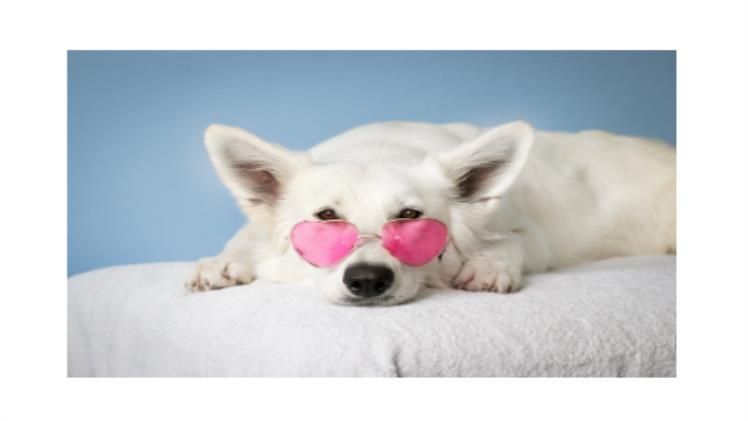Most pet insurance providers do not cover prescription food in their standard accident-and-illness plans. However, some providers offer coverage for prescription Weruva cat food under their wellness plans, which are optional add-ons for routine care expenses.
Finding the perfect insurance coverage for your canine companion can be an overwhelming task. Dog insurance plays a crucial role in ensuring the health and well-being of your four-legged family member. With a multitude of providers offering various levels of coverage, making the right choice is paramount. This article aims to shed light on the world of dog insurance, highlighting its significance, key coverage options, and how to select the ideal policy to safeguard your pup’s health and happiness.
Benefits of Dog Insurance
In a world where veterinary costs are steadily rising, dog insurance has emerged as a lifeline for pet owners. Here are some compelling advantages of having the best pet insurance:
Comprehensive Coverage for Illness and Injury: Dog insurance typically covers the costs associated with illnesses and injuries. These expenses can be financially burdensome without insurance, but with the right policy, you can rest easy knowing that your beloved pet will receive the necessary medical attention without straining your wallet.
Inclusive Preventive Care: Many dog insurance policies extend coverage to preventive care. This includes routine vaccinations, flea and tick prevention, spaying/neutering, and more, often at reduced rates compared to out-of-pocket expenses at the vet. This feature not only saves you money but also ensures your furry friend’s overall well-being.
Flexible Plans to Suit Your Needs: Dog insurance plans are highly adaptable. You have the freedom to choose coverage that aligns with your unique requirements and budget. Whether you seek basic wellness protection or comprehensive coverage encompassing everything from emergency surgeries to cancer treatments, dog insurance offers options.
Financial Support for Unexpected Expenses: Unforeseen accidents or medical conditions can lead to substantial vet bills. Dog insurance acts as a safety net, sparing you from the stress of figuring out how to cover these expenses, so you can focus on your pet’s recovery.

Types of Dog Insurance Plans
Just as dogs come in various breeds and sizes, dog insurance plans vary to cater to diverse needs and budgets. Here are some common types of dog insurance plans:
Accident-Only Coverage: This type of plan focuses on accidents such as car collisions or accidental ingestion of harmful substances. While it doesn’t cover illnesses, it often includes benefits like emergency boarding and lost pet assistance.
Comprehensive Coverage: Comprehensive plans encompass both accidental injuries and illnesses. They extend coverage to routine care like vaccinations and checkups and often include additional benefits such as prescription drug coverage and dental care for dogs.
Wellness Plans: If you’re primarily concerned with routine veterinary visits and preventive care, wellness plans are designed for you. These plans typically have lower premiums and cover vaccinations, wellness checkups, and preventive treatments.
What to Look for in a Dog Insurance Policy
Choosing the right dog insurance policy requires careful consideration of various factors. Here’s a checklist to guide you:
Assess Coverage Level: The extent of coverage you select should depend on your dog’s breed, age, and health. Older dogs or those with existing medical conditions may benefit from more comprehensive coverage, while younger, healthier dogs might suffice with basic protection.
Check the Veterinary Network: Many policies require using veterinarians within their network to access full benefits. Ensure that the provider has a broad network of participating veterinarians so that your dog receives quality care at an affordable cost.
Evaluate Cost: Dog insurance premiums can vary widely based on factors like breed, age, and coverage type. Research multiple providers to find the best balance between cost and coverage. However, don’t compromise on quality for the sake of affordability.
Review Policy Limits: Examine the policy’s coverage limits to ensure they align with your potential liabilities. Inadequate coverage could leave you exposed to significant financial losses in case of an emergency.
Understand Deductibles: Most dog insurance policies include deductibles, which are the amounts you must pay out of pocket before insurance coverage kicks in. Assess your financial capacity to cover these deductibles when needed.
Scrutinize Exclusions: Thoroughly review the policy’s exclusions to understand what is not covered. Depending on your dog’s lifestyle and activities, you may need to negotiate additional coverage or endorsements to fill potential gaps.
Consider Bundling: Many insurance providers offer discounts when you bundle multiple insurance policies, such as dog insurance, general liability, or property insurance. This bundling can result in cost savings while ensuring comprehensive protection.
Common Dog Illnesses and Injuries Covered by Insurance Policies
Owning a pet is a rewarding experience, but it comes with the responsibility of ensuring their health and well-being. Pet insurance policies typically cover a range of common illnesses and injuries in dogs:
Accidents and Injuries: This category includes incidents like broken bones, lacerations, and injuries from accidents such as car collisions. Insurance ensures that your dog receives prompt medical attention in case of emergencies.
Illnesses: Dog insurance covers various illnesses, including infections, digestive disorders, allergies, and more. Chronic conditions like diabetes and arthritis are also typically included, providing long-term support.
Hereditary Conditions: Some dog breeds are prone to hereditary conditions. Insurance policies often cover these conditions, ensuring that your pet receives the necessary treatments and medications.
Emergency Care: In critical situations, when immediate medical attention is required, insurance steps in to cover emergency care costs, providing peace of mind during stressful times.
Prescription Medications: The cost of prescription medications can add up. Dog insurance often includes coverage for necessary medications, making them more accessible for your furry friend’s treatment.
Factors that Affect the Cost of Dog Health Insurance Coverage
The cost of dog health insurance coverage is influenced by several factors:
Breed: Certain dog breeds are considered higher risk due to genetic predispositions to specific illnesses or injuries. Purebred dogs and larger breeds often come with higher premiums.
Location: The cost of insurance can vary by state or region due to factors like average veterinary costs and available discounts. Research local options to obtain accurate quotes based on your location.
Age: The age of your dog plays a significant role in premium calculations. Older dogs may have higher premiums due to an increased likelihood of health issues.
Coverage Level: The extent of coverage you choose directly impacts your premium. Comprehensive plans with broader coverage typically come with higher premiums than basic plans.
Best Pet Insurers for Dogs
When it comes to selecting the best pet insurer for your dog, it’s essential to consider various factors, including coverage, cost, and customer satisfaction. Here are some top pet insurers for dogs:
Embrace Pet Insurance: Embrace offers comprehensive coverage for accidents, illnesses, and hereditary conditions. They also provide preventive care options and flexible plans, allowing you to tailor coverage to your dog’s needs.
PetPlan: PetPlan offers customizable plans with extensive coverage options, including accidents, illnesses, and hereditary conditions. Their flexibility and reputation for excellent customer service make them a reliable choice.
Healthy Paws: Healthy Paws specializes in pet insurance and offers straightforward plans covering accidents and illnesses. They have no caps on payouts, ensuring that your dog receives the necessary care.
Conclusion
Pet insurance is a vital investment in your dog’s health and well-being. Finding the perfect dog insurance policy involves considering factors like coverage, cost, and provider reputation. By conducting thorough research, comparing policies from different providers, and reading the fine print, you can select a plan that ensures your furry friend receives the best care when needed, without straining your finances. Your dog’s health and happiness are worth protecting.


